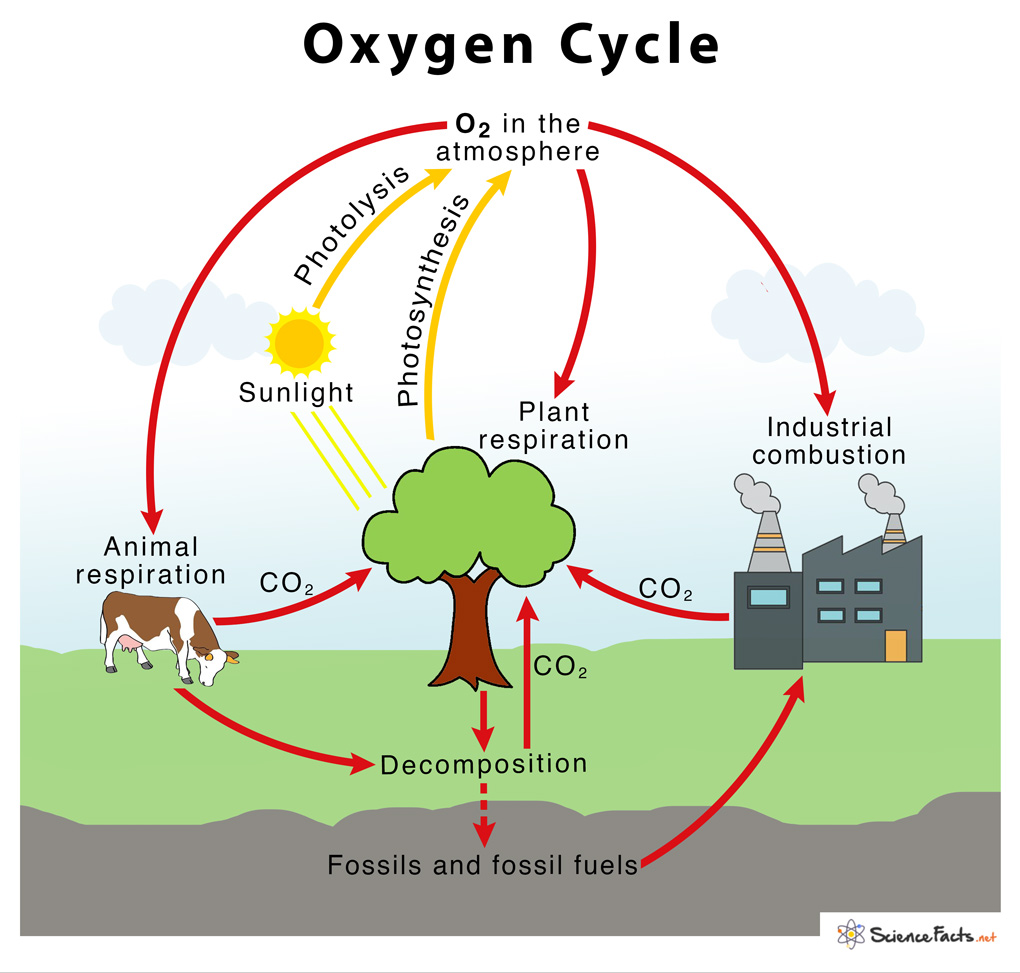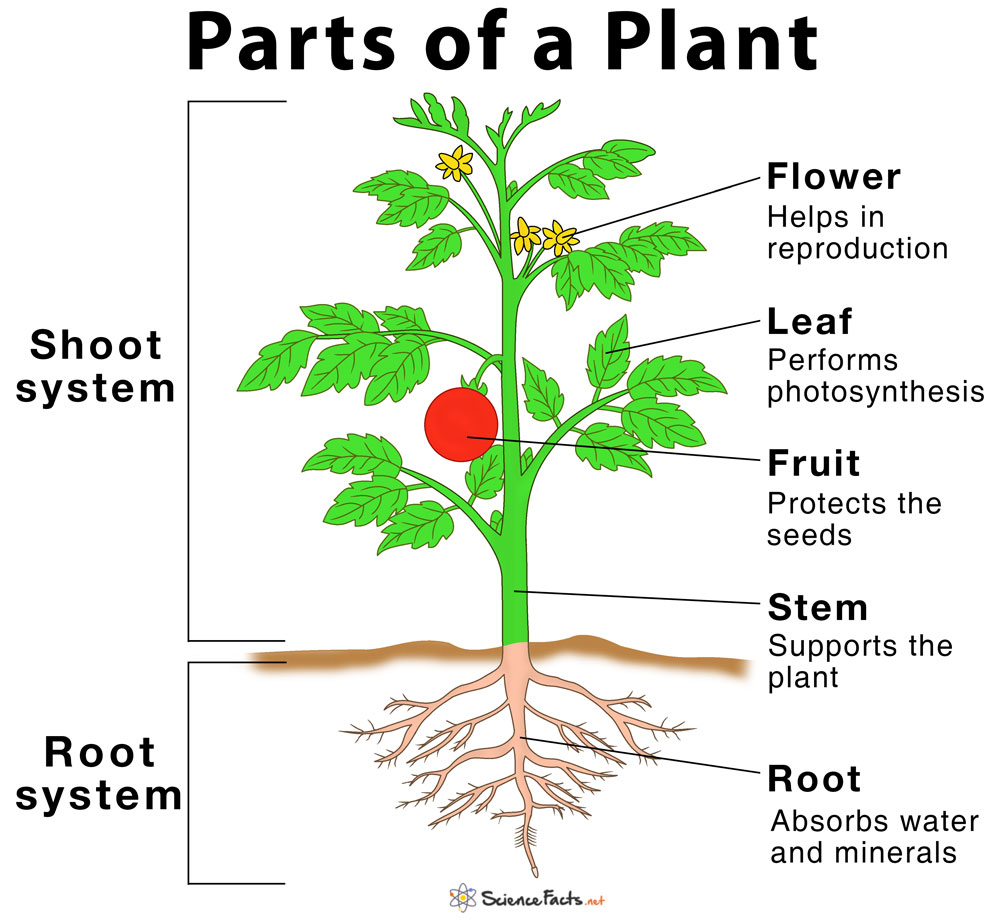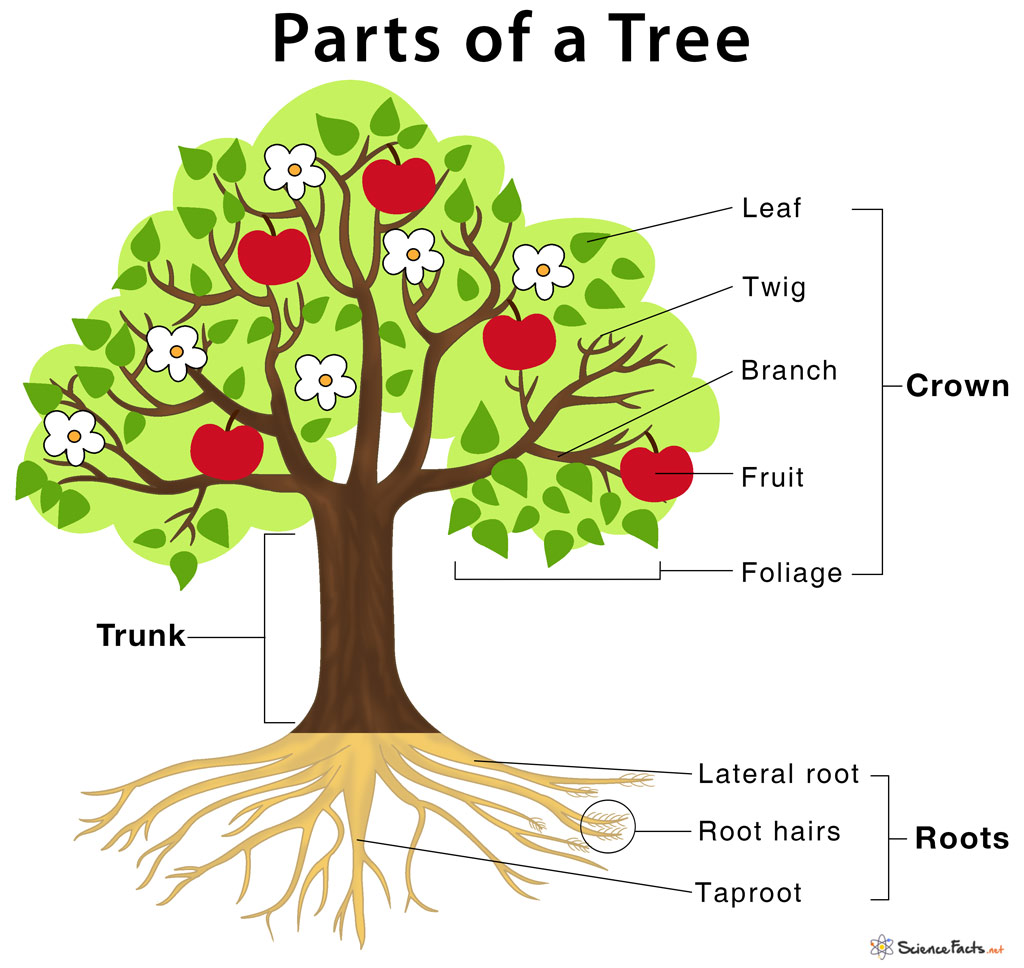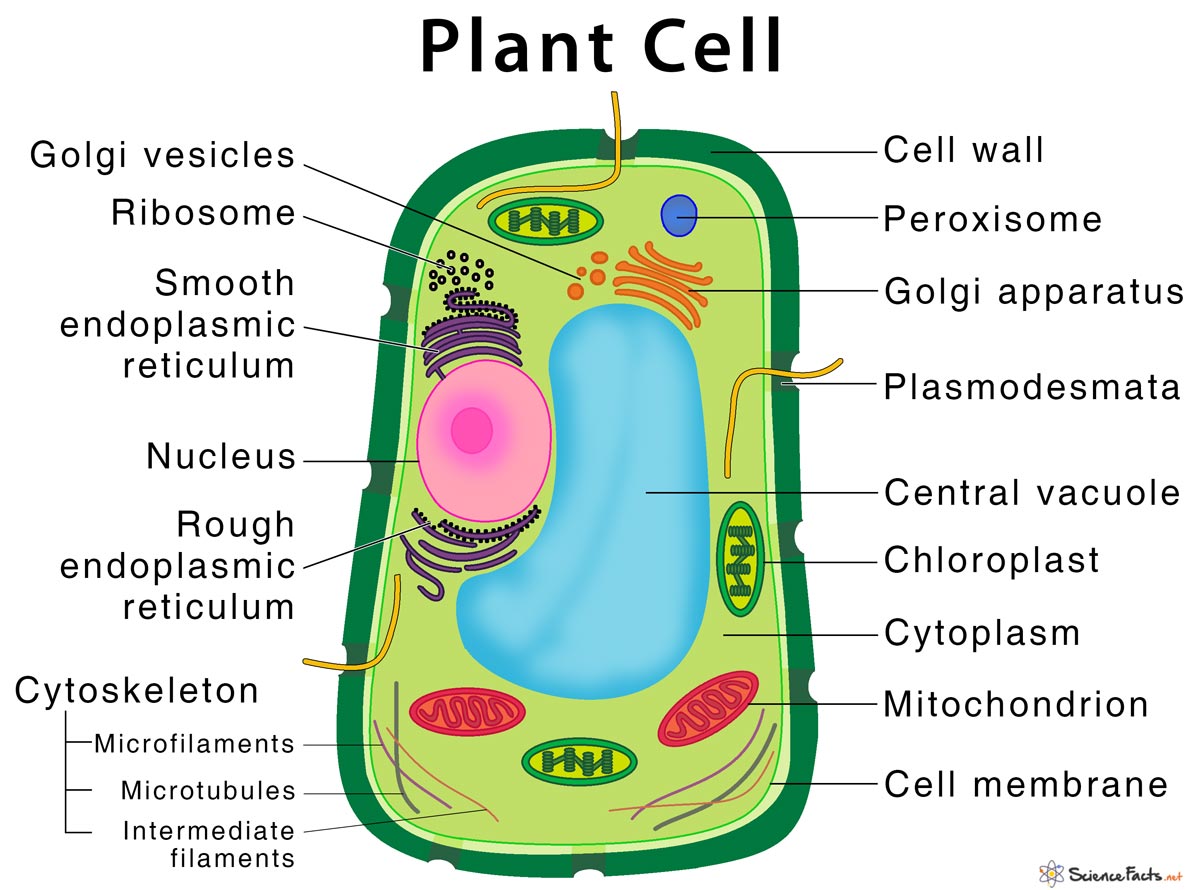Oxygen Cycle
What is the Oxygen Cycle
It is the process of biogeochemical transitions of oxygen atoms in its different forms in nature between the three main reservoirs of our ecosystem.
What are the Three Main Reservoirs of Oxygen in Nature
The atmosphere, biosphere, and lithosphere forms the three main reservoirs or sources of oxygen on earth.
The Three Steps of the Oxygen Cycle
1) Production of Free Oxygen
Occurs through the following processes:
- Photolysis – Ultraviolet radiation of the sun breaks down atmospheric water and nitrous oxide
- Photosynthesis – Plants make food and release oxygen as a byproduct
- Weathering – Oxygen-containing minerals in rocks gradually breaks down
2) Utilizing the Free Oxygen
Involves the following processes:
- Respiration – Animals take in oxygen from the atmosphere and use it to break down carbohydrates
- Decomposition – Invertebrates, including fungi, bacteria, and some insects decay the dead organic matter of plants and animals remains
- Combustion – Organic materials, including fossil fuels, plastics, and wood, are burned in the presence of oxygen
- Corrosion – Metals like iron or alloy rust when they are exposed to moisture and oxygen for an extended period, new compounds of oxides are formed by the combination of oxygen with the metal
3) Utilizing Carbon Dioxide and Releasing Oxygen Back
Carbon dioxide present in the atmosphere is again utilized by green plants with the help of:
- Photosynthesis – Plants utilize the carbon dioxide present in the atmosphere for preparing food, thus completing the cycle
Importance of the Oxygen Cycle in Nature
- Maintaining the oxygen level in the atmosphere which helps to carry out important physiological processes such as respiration and photosynthesis
- Helping in the proper functioning of the carbon cycle since the oxygen and carbon cycle are interconnected
- Facilitating other biogeochemical cycles such as nitrogen and sulfur cycles to continue since oxygen binds and forms stable compounds with other molecules
- Sustaining the aquatic ecosystem present beneath the surface
- Forming the outer layer of earth’s crust, the lithosphere
How Do Humans Affect the Oxygen Cycle
Human activities release excess carbon dioxide, carbon monoxide, and some other harmful gases into the atmosphere, thus decreasing the concentration of oxygen in the following ways:
- Indiscriminate cutting of trees or deforestation
- Much higher human birth rate compared to death rate
- Effluents from vehicles, industries, and burning of fossil fuels
FAQs
Deforestation naturally leads to lower oxygen levels in air as it eliminates the main source of oxygen production. It consecutively increases the concentration of carbon dioxide as well.
Global warming decreases the solubility and concentration of oxygen in the waters of lakes, rivers, and oceans, thus severely affecting life in the aquatic ecosystem.
Oxygen enters the atmosphere through the process of photolysis, which is the first step of the oxygen cycle.
Phytoplankton participate in the oxygen cycle in the same manner as terrestrial plants. But being aquatic plants, they perform photosynthesis under water to produce oxygen for the survival of aquatic animals.
The two major processes involved in the oxygen cycle are photosynthesis and respiration.
The carbon, nitrogen, and oxygen cycles are similar because they all are biogeochemical cycles showing the continuous utilization and replacement of those three elements with the help of interactions between the living and non-living elements of the earth.
Article was last reviewed on Wednesday, January 27, 2021





Hello, Can i use the photo as reference for my project?
Yes, but please give due credit to the website
Can I use this as reference?